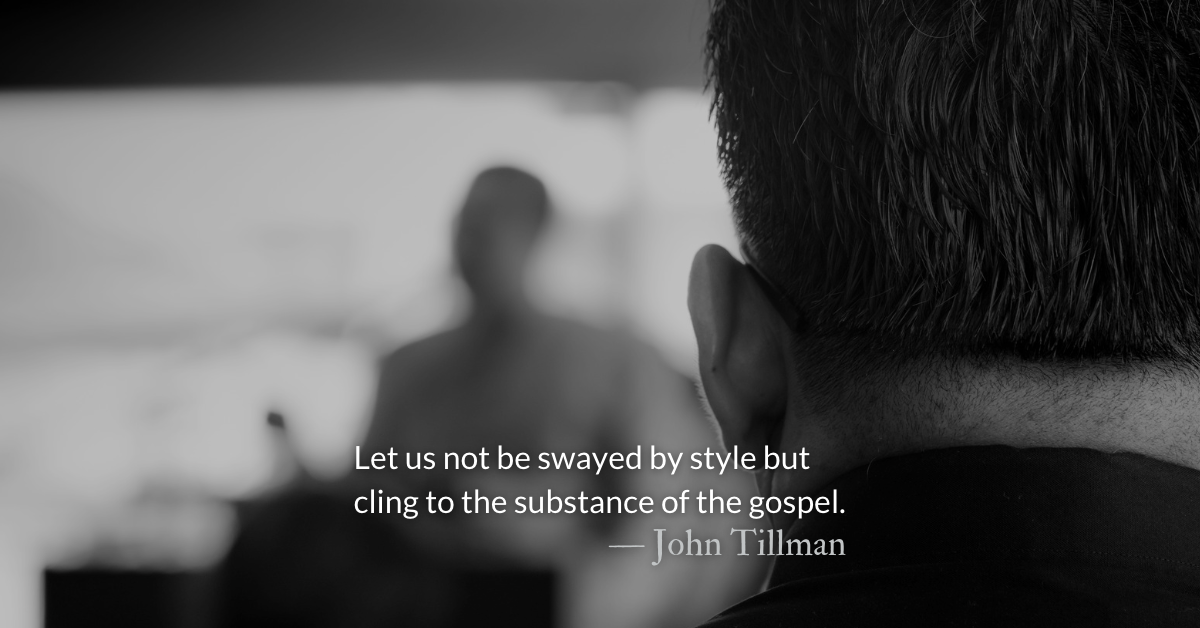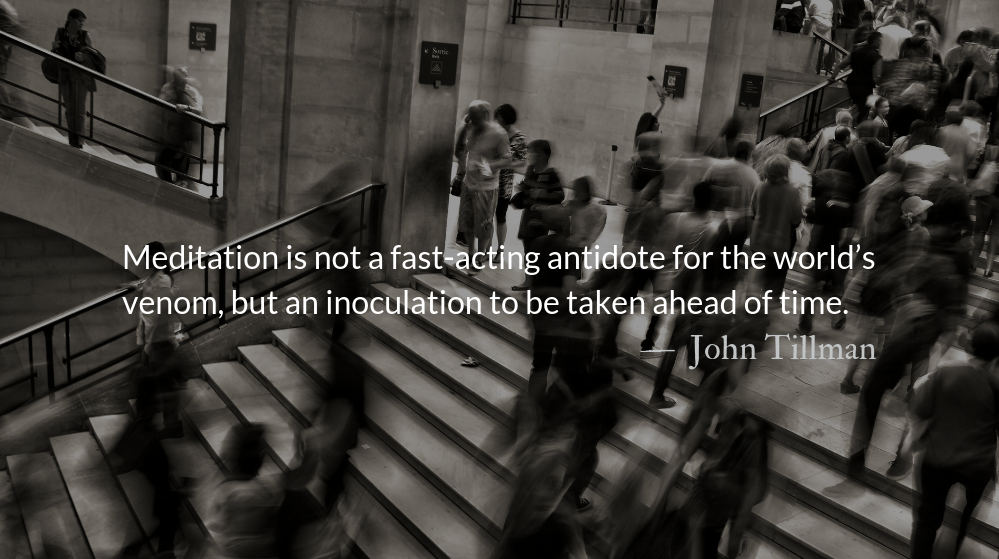Scripture Focus: 1 Corinthians 2.1-7
1 And so it was with me, brothers and sisters. When I came to you, I did not come with eloquence or human wisdom as I proclaimed to you the testimony about God. 2 For I resolved to know nothing while I was with you except Jesus Christ and him crucified. 3 I came to you in weakness with great fear and trembling. 4 My message and my preaching were not with wise and persuasive words, but with a demonstration of the Spirit’s power, 5 so that your faith might not rest on human wisdom, but on God’s power.
6 We do, however, speak a message of wisdom among the mature, but not the wisdom of this age or of the rulers of this age, who are coming to nothing. 7 No, we declare God’s wisdom, a mystery that has been hidden and that God destined for our glory before time began.
Reflection: Style Versus Substance
By John Tillman
Paul was an eloquent speaker and writer. His poem on love in 1 Corinthians 13 is studied in literature classes simply for its beauty.
Paul was a wise thinker and debater. His letter to the church in Rome is a masterwork of argumentation and theology and his personal letter to Philemon is lovingly and carefully persuasive.
Paul was knowledgeable, especially about the scriptures. As a “Hebrew of Hebrews” and a Pharisee (Philippians 3.5), Paul would have known the entire catalog of Jewish scriptures and would probably have memorized many passages or even entire books. He also was knowledgeable about the culture, and able to quote their philosophers and sayings back to them.
When Paul says that he did not come with eloquence, wisdom, or knowledge…what exactly is he saying? Don’t we need to know more than “Christ and him crucified”? Maybe how to balance a checkbook? Our voting rights under our federal and local governments?
This is one case in scripture where “plain reading” fails us if we don’t put what Paul is saying in context. Paul didn’t mean that when he was last in Corinth he spoke poorly, abandoned using rhetoric, eschewed wisdom, and forgot all his knowledge. He is using hyperbole to emphasize something.
The Corinthians, like many of us, were immature but thought they were wise. They were impulsive and addicted to pleasures, yet thought they were in control. They were swayed by knowledge, yet gained no wisdom. They were wowed by rhetoric, yet missed the point. They were charmed by eloquence, yet missed the beauty of the gospel. They were divided and deceived, yet considered themselves wise.
The Corinthians had become divided between Paul and Apollos. Apollos was another eloquent, wise, and knowledgeable speaker, trained by Paul’s ministry partners, Priscilla and Aquilla. Apollos would not have taught contrary to Paul, but the Corinthians became divided between them.
Often when we first grasp the basics of something we too quickly think we are experts. Often when we like the way someone speaks we can become swayed by style rather than substantive truth.
Paul was telling the Corinthians, and telling us, that the gospel does not depend on eloquence, wisdom, and knowledge. Paul shuts down Corinthian pride, encouraging humility and a return to basics. He might say the same to us.
Let us not be swayed by style but cling to the substance of the gospel.
Divine Hours Prayer: The Greeting
O God, you know my foolishness, and my faults are not hidden from you. — Psalm 69.6
– From The Divine Hours: Prayers for Springtime by Phyllis Tickle.
Today’s Readings
Numbers 28 (Listen 3:51)
1 Corinthians 2 (Listen 2:26)
This Weekend’s Readings
Numbers 29 (Listen 5:05), 1 Corinthians 3 (Listen 3:05)
Numbers 30 (Listen 2:20), 1 Corinthians 4 (Listen 3:15)
Read more about Unhurried Wisdom
Job also utilized opposing statements to reveal the complexity of life and necessity of wisdom.
Read more about Here Comes the Sun
If the Lord allows us to enjoy a moment, accept the gift… Wisdom balances pain and joy.








